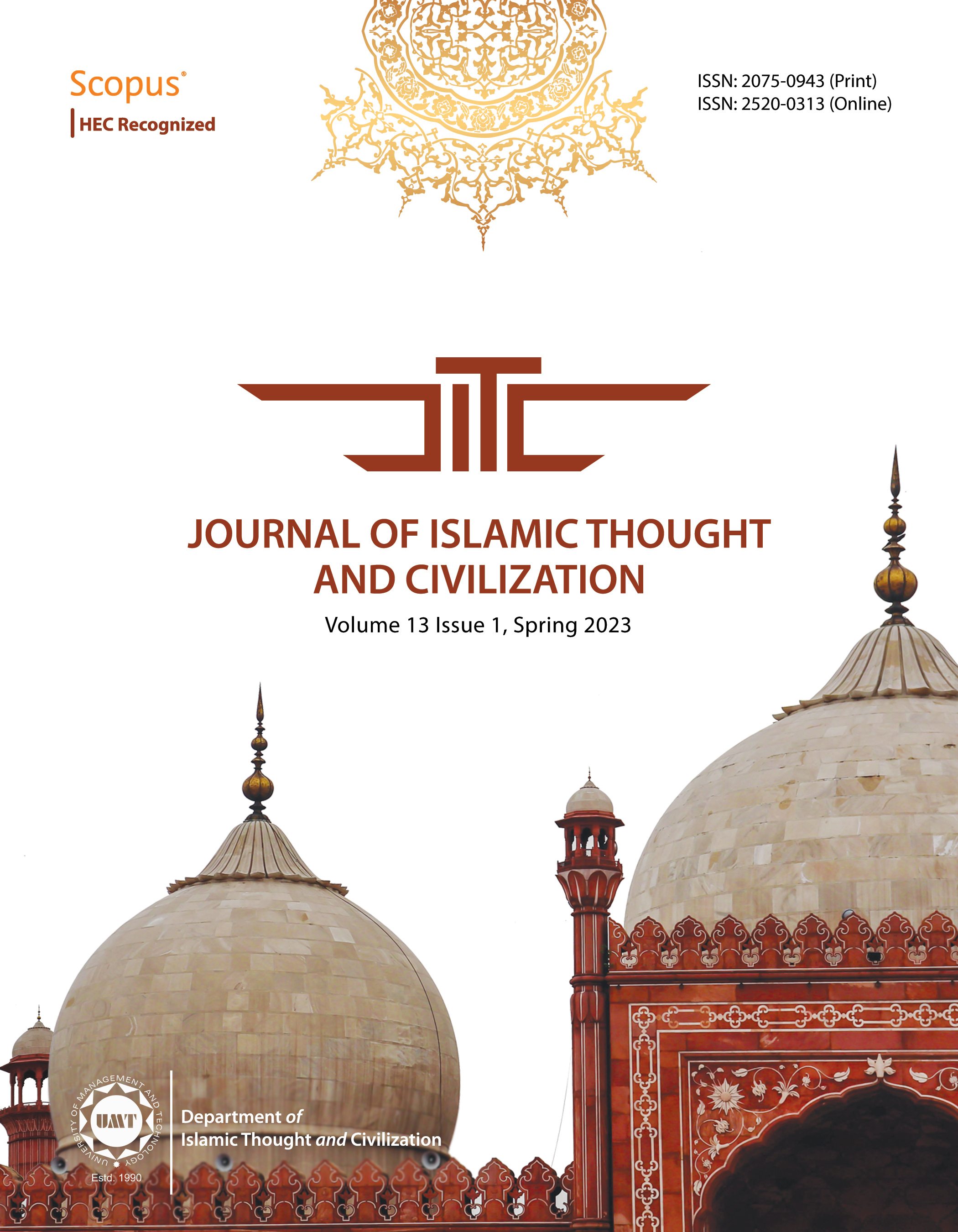Peculiarities of Kazakhstan and Malaysia in View of the Relationship between State and Religion
Abstract
 Abstract Views: 63
Abstract Views: 63
The current study analyzed the specifics of the Republic of Kazakhstan and the Federation of Malaysia keeping in view the relationship between religion and state. For Kazakhstan, which has a multi-confessional and multi-ethnic specificity, it is extremely important to study and examine the experience of other peer countries. In this context, Malaysia, as a multi-confessional and multi-ethnic state, has its own experience in maintaining the relationship between state and religion. Kazakhstan, which has enshrined itself in its constitution as a secular state, has always focused on improving the state's policy on religion, regulating the activities of religious associations in view of democratic requirements and defining the complex aspects of the relationship between state and religion. For Kazakhstan, it is of particular importance to differentiate its model of a secular country dominated by the representatives of Islam. For this purpose, the country chosen for comparison was Malaysia, which has excellent development indicators. The current study determined the specific features of the two countries in the in terms of ethnic and confessional composition, the structure of public administration, religious education, activities of religious associations, interreligious dialogue and tolerance, the fight against religious extremism, and terrorism via historical and comparative analysis.
Downloads
References
Gordon, P. “Public Policy Toward Religion in Malaysia.” Pacific Affairs 51, no. 3 (1978): 390. DOI: https://doi.org/10.2307/2757937
Jaafar, M. I., Ahmetova, Ekhmetova. “Religious Extremism and Radicalisation of Muslims in Malaysia: the Malay Ties with the Mujahidin, al Qaeda and ISIS.” Journal of Nusantara Studies 5 no.1 (2020): 110-112. DOI: https://doi.org/10.24200/jonus.vol5iss1pp104-123
Kayadibi, S. “Dini ve Kültürel Çoğulculukta Varoluş Mücadelesine Bir Bakış: Malezya Tecrübesi.” [A Look at the Struggle for Existence in Religious and Cultural Pluralism: the Experience of Malaysia]. Tarih Kültür ve Sanat Araştırmaları Dergisi 5, no. 3 (September 2016). DOI: https://doi.org/10.7596/taksad.v5i3.525
Mohamed Adil, M. A. “Restrictions in Freedom of Religion in Malaysia: A Conceptual Analysis with Special Reference to the Law of Apostasy.” Muslim World Journal of Human Rights, no. 4 (2007): 24, doi:10.2202/1554-4419.1092. DOI: https://doi.org/10.2202/1554-4419.1092
Mohamed Azam Mohamed Adil. “Law of Apostasy and Freedom of Religion in Malaysia.” Asian Journal of Comparative Law (2007). DOI: https://doi.org/10.2202/1932-0205.1060
Musaeva, N. R. Assembly of the People of Kazakhstan - An Important Factor in the Formation of Tolerance of Personality.” Moscow Psychological and Social Review 4 (48), (2012): 93-94.
Ooi, T. “The Politics of Buddhist Organizations in Malaysia.” In B. Platzdasch and J. Saravanamuttu (eds.), Religious Diversity in Muslim-majority States in Southeast Asia: Areas of Toleration and Conflict. 321-340, ISEAS–Yusof Ishak Institute, 2014,. DOI: https://doi.org/10.1355/9789814519656-019
Rosenthal, E. I. J. Islam in the Modern National State. Cambridge: Cambridge University Press, 1965. DOI: https://doi.org/10.1017/CBO9780511753299
Tew, Yvonne. “Constitutionalizing and Politicizing Religion in Contemporary Malaysia.” Kyoto Review of Southeast Asia, no. 23, (2018). https://kyotoreview.org/issue-23/ constitutionalizing-and-politicizing-religion-in-contemporary-malaysia.
Turdieva, D. M. “The Religious Tolerance in Malaysia.” ISJ Theoretical and Applied Science 12 (80), (2019). DOI: https://doi.org/10.15863/TAS.2019.12.80.80
Yasin, S.M. “Existing Framework of Inter-Religious Dialogue in Malaysi.” Al-Itqān Journal of Islamic Sciences and Comparative Studies 3. Issue No. 2 (2019): 116-121.
Zolotukhin, I.N. Malaysia in the Mirror of the Ethno-Confessional Situation: History and Modernity. Oikumena, no.1 (2010).
Copyright (c) 2023 Aldiyarova Zhanat, Nurgul Tutinova, Zatov Kairat , Seifullina Galiya, Bagasharov Kudayberdi, Mussabekov Maxat

This work is licensed under a Creative Commons Attribution 4.0 International License.

This work is licensed under a Creative Commons Attribution 4.0 International License. Authors retain copyright and grant the journal right of first publication with the work simultaneously licensed under a Creative Commons Attribution (CC-BY) 4.0 License that allows others to share the work with an acknowledgement of the work’s authorship and initial publication in this journal.








